“Dealing with garden pests and pesky flies can be a challenge in the wonderful world of gardening. While some resort to chemical pesticides, it’s important to consider their impact on the environment and our health. Fortunately, there’s a natural and eco-friendly solution – plants that repel flies. In this guide, we’ll introduce you to a variety of these remarkable plants, ensuring you can relish a fly-free garden without resorting to harmful chemicals.”
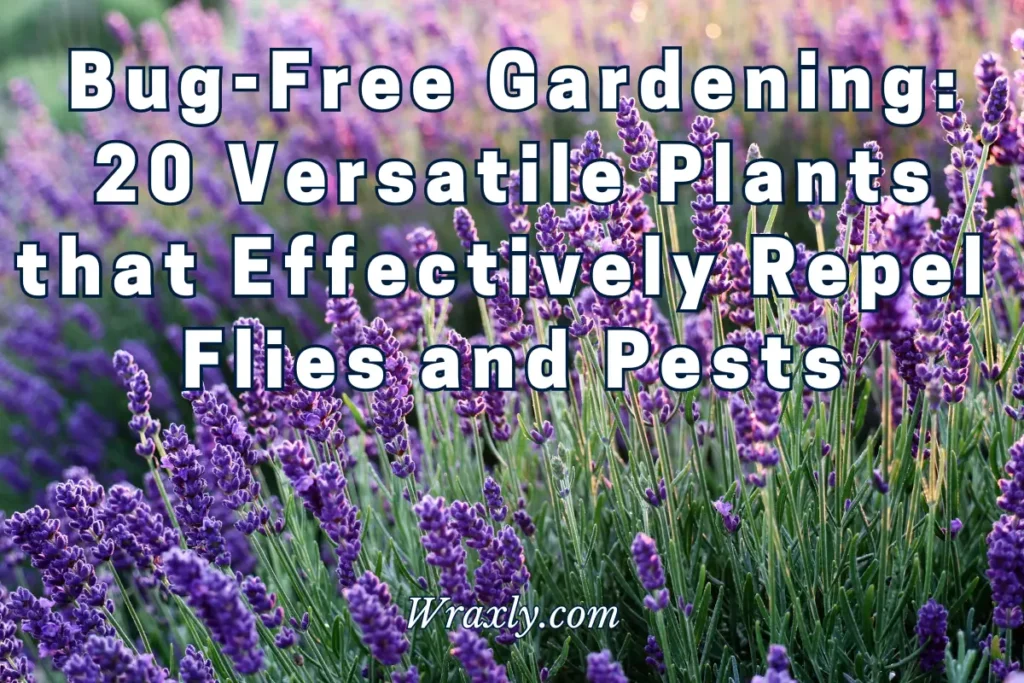
Why Choose Natural Pest Repellents?
Before we dive into the world of plants that repel flies, let’s take a moment to understand why natural pest repellents are a better choice for your bug–free gardening:
1. Eco-Friendly
Chemical pesticides can harm good insects like bees and butterflies, disrupt the balance of nature, and pollute our soil and water. Natural repellents don’t have these drawbacks.
2. Healthier Living
Plants that repel flies offer a safer alternative to chemical pesticides, avoiding potential exposure to harmful substances for you, your pets, and all the critters in your garden.
3. Sustainability
Planting pest-repelling plants encourages biodiversity and contributes to a healthier garden ecosystem in the long run.
4. Budget-Friendly
Many of these pest-repelling plants are easy to grow and don’t require much attention, making them a cost-effective alternative to chemical solutions.
20 Plants That Repel Flies
Now, let’s get to know the 20 amazing plants that can effectively keep flies and pests away from your garden:
1. Lavender
Lavender has an enchanting smell yet exerts powerful insect-repelling power.
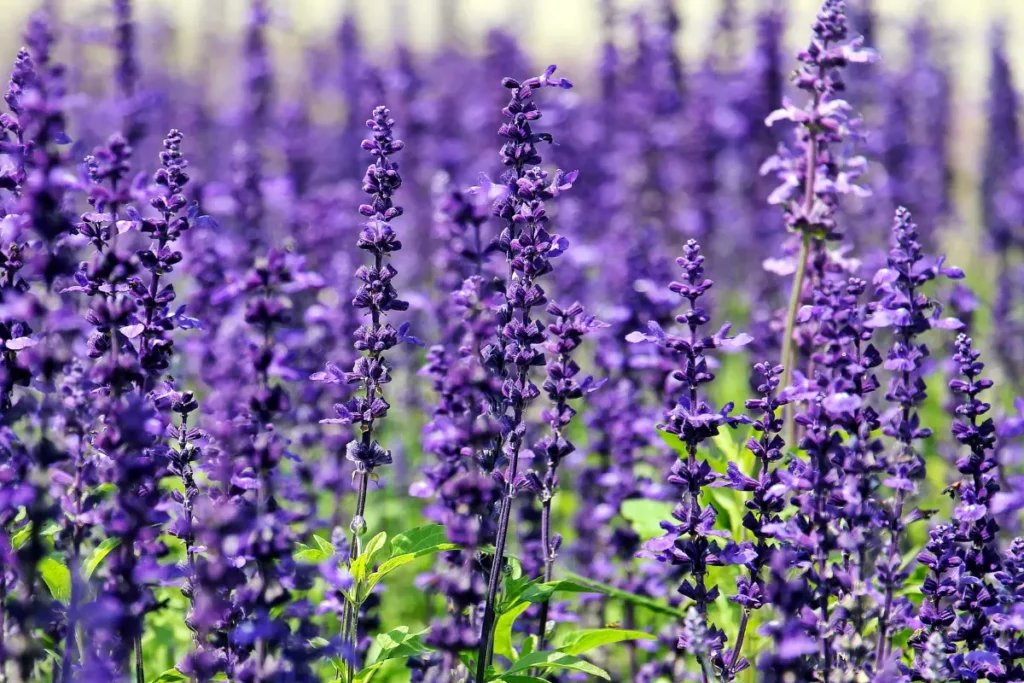
Planting lavender in your garden may help repel moths, flies, and mosquitoes since they won’t be able to survive there. It’s the perfect addition to any garden if properly planted in a sunny location with draining soil.
2. Marigold
Marigolds are more than just marvelous and radiant garden blooms; they are also highly effective plants that repel flies and various other pests. Their vibrant appearance adds beauty to your garden while serving as natural insecticides, protecting your plants from the likes of aphids and nematodes.
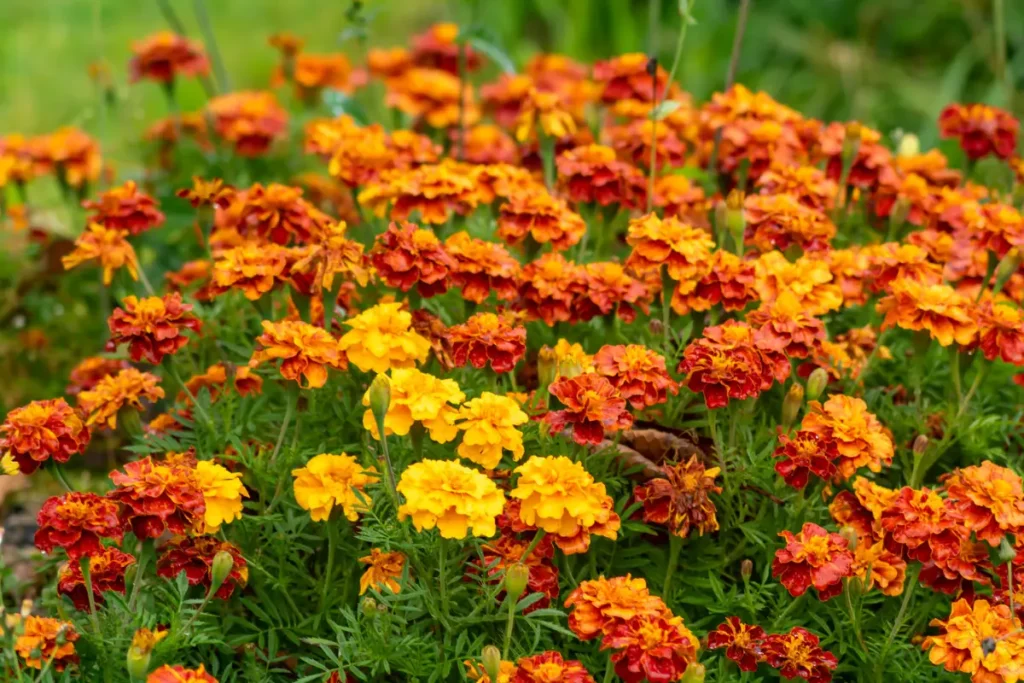
They bloom into beautiful, colorful flowers that can be used as border plants or distributed all over your garden to act as pesticides naturally.
3. Basil
Basil is more than a culinary spice since it wards off flies and mosquitoes. Use basil plants for potting or plant them as a bug repellent between your vegetables.
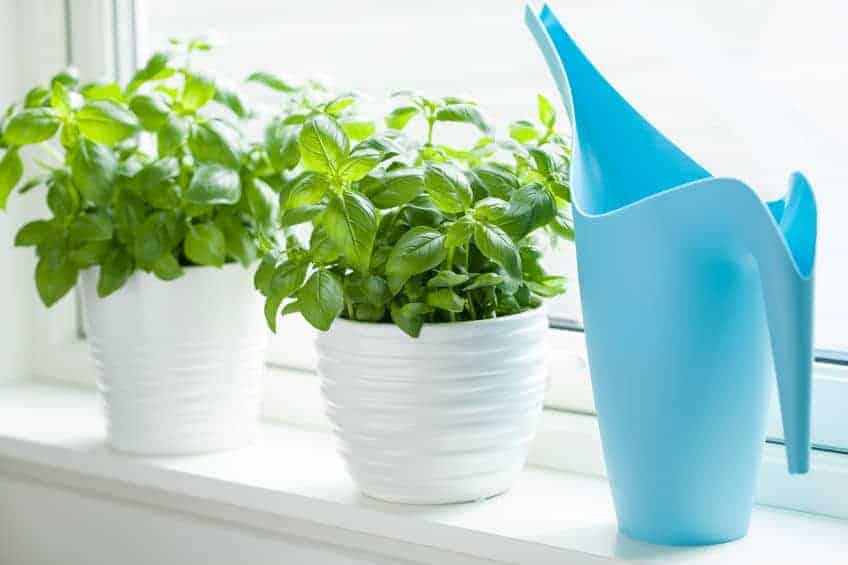
Plus, you’ll have fresh basil leaves on hand for your favorite recipes!
4. Rosemary
Rosemary, not just an all-purpose herb with fragrant leaves and culinary versatility, but also a remarkable natural fly deterrent among plants that repel flies.
Plant it near entrances to your garden and other places, such as outdoor seating areas, to discourage flies from buzzing around.
5. Mint
Mint is a herb that grows quickly and can repel fleas and ants. However, beware of growing mint because it often spreads quickly. It can be grown in pots to limit its size and provide effective pest control.
6. Chrysanthemum
Pyrethrum, a natural insect repellent found in chrysanthemums, is usually used as a commercial insecticide.
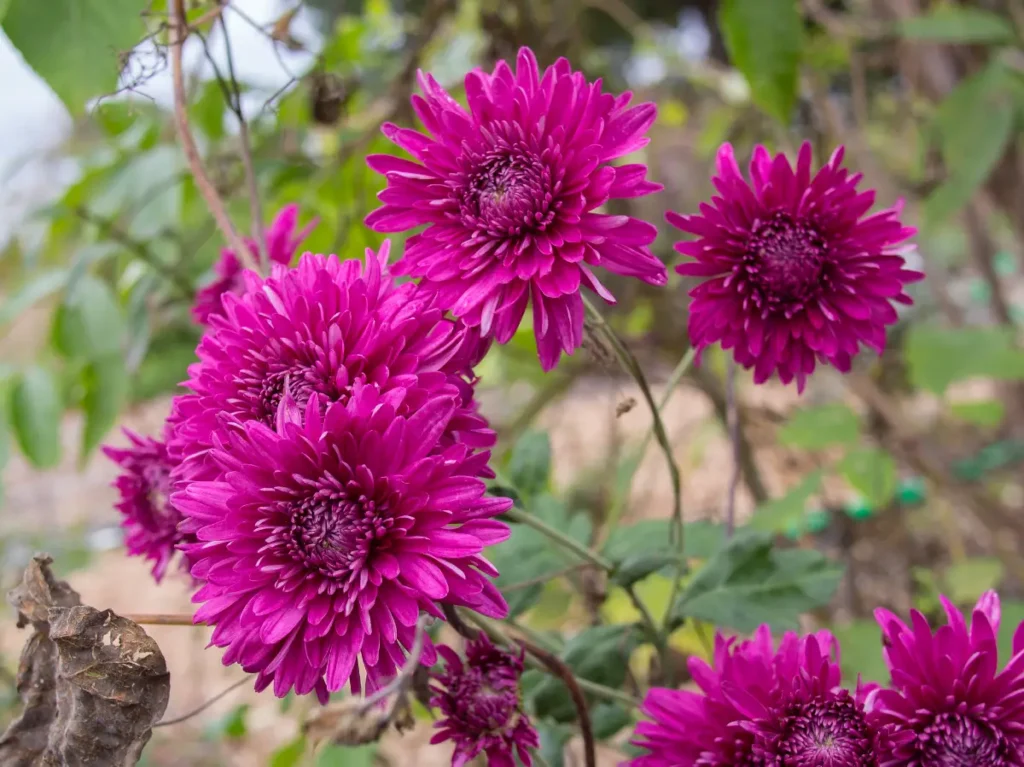
You can plant these vibrant flowers in your garden and use them to fight against flies, ants, and other pests.
7. Citronella
Citronella is famous for its use in candles and oils to ward off mosquitoes, but you can also grow the citronella plant itself.
Plant it in pots or in well-drained soil to keep mosquitoes away from your outdoor gatherings.
8. Lemongrass
Lemongrass, with its citrusy scent, is an effective natural fly and mosquito repellent. It’s a great addition to gardens and outdoor spaces where you want to create a bug-free environment.
9. Nasturtium
Nasturtiums are colorful, edible, and best of all, is a plant that repels flies. Add a burst of color to your garden while safeguarding your plants from aphids, whiteflies, and cucumber beetles with these vibrant blooms.
10. Garlic
Now, let’s talk about garlic – not just a must-have in the kitchen but a green guardian for your garden, too.
When you plant garlic alongside your veggies, it’s like inviting a vigilant security guard to the garden party. Why? Because garlic knows how to ward off aphids, snails, and Japanese beetles.
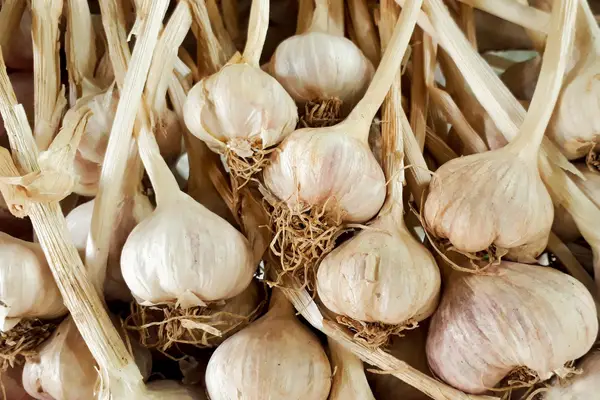
So, when these pesky critters try to sneak into your garden, garlic stands in their way, keeping your plants safe and sound.
11. Petunia
Petunias have a talent for making unwelcome guests like aphids and hornworms turn and walk the other way.
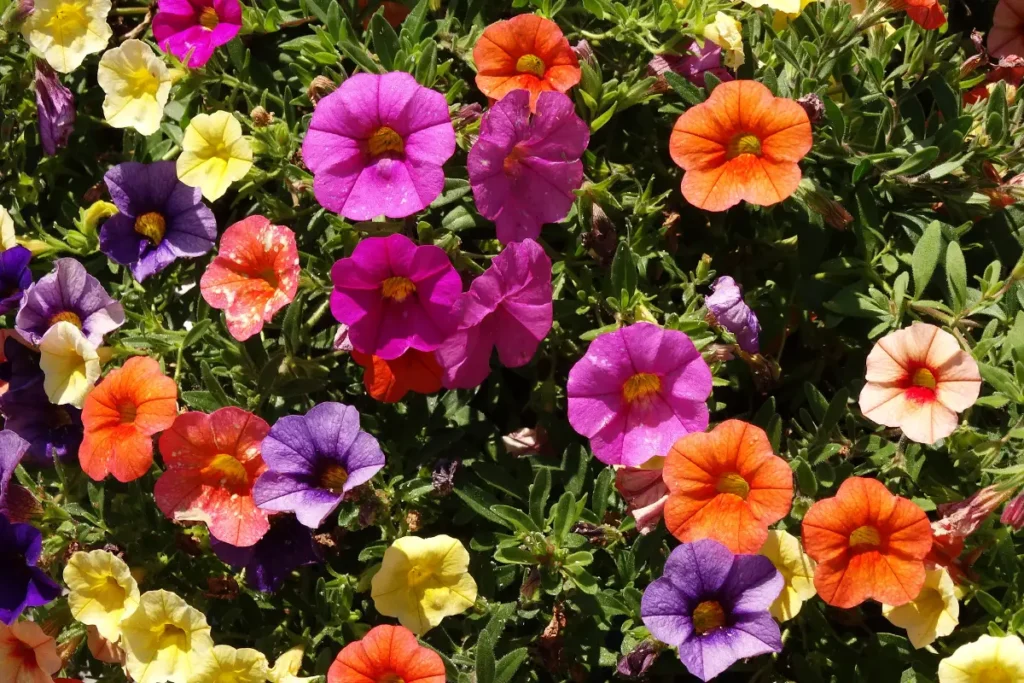
They’re like the friendly bouncers at the garden gate, ensuring only good vibes and vibrant blooms inside.
With a rainbow of colors to choose from, you can enjoy the beauty and practicality of petunias in your garden, keeping it both stunning and pest-free.
12. Dill
Dill isn’t just a flavorful herb for your kitchen adventures; it’s like your garden’s secret agent against bugs.
When you introduce dill to your vegetable garden, it’s like enlisting a skilled spy to watch over your crops.
Aphids, squash bugs, and spider mites may think they can sneak in, but dill is always on alert. It releases its natural aroma, acting like a “bug, beware” sign.
13. Fennel
Fennel isn’t just another herb but a real pest-fighting champ in your garden. Picture this: fennel as your garden’s own security detail, standing tall and fearless against aphids, slugs, and snails.
When these critters try to crash the garden party, Fennel is the bouncer, firmly saying, “No entry!” The best part? Fennel’s feathery foliage and sunny yellow flowers will add a touch of class to your garden’s look.
14. Thyme
Thyme doesn’t just season your dishes; it’s like the guardian at the gate, stopping flies, mosquitoes, and cabbage worms in their tracks. Thyme says, “This garden is a no-fly zone.”
For thyme to work its pest-repelling magic, it needs sunlight and well-drained soil. Think of it as your garden’s own security team, ensuring a pest-free environment.
15. Oregano
Oregano, the Mediterranean star, offers more than just flavor for your taste buds; it’s a guardian for your garden, effectively functioning as one of the essential plants that repel flies. Like a vigilant bodyguard, it ensures that aphids and other pesky insects are kept at a distance, safeguarding your plants.
Incorporating oregano into your garden isn’t just about flavor; it’s an extra layer of security for your green friends.
16. Chives
Chives – mild on your taste buds but fierce when it comes to safeguarding your garden. They’re like the knights in shining armor for your veggies, valiantly defending them from aphids, carrot flies, and slugs.
When you plant chives nearby, it’s like recruiting your personal security team for your crops. And as a bonus, you get to savor their culinary charm in your dishes. Chives – where flavor meets protection.
17. Catnip
Catnip isn’t just for your feline pals; it’s also a master of mosquito and pest control. Planting catnip in a sunny spot is like creating a forcefield around your garden.
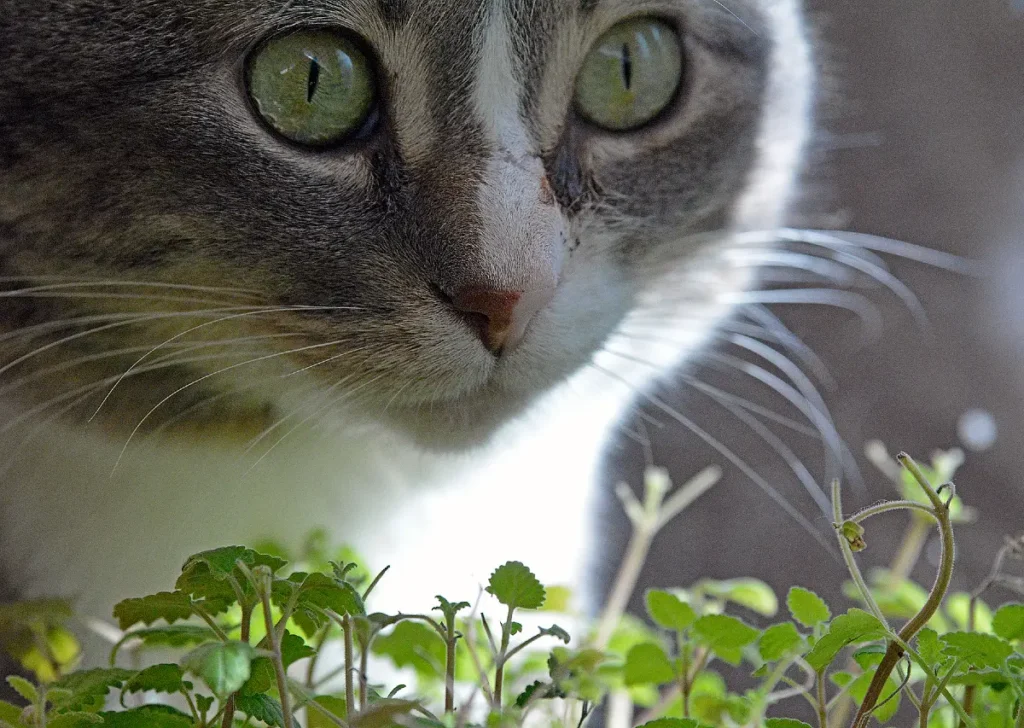
But be prepared for some curious cat visitors from the neighborhood who can’t resist its charms. Catnip – where pest defense and kitty entertainment collide!
18. Tansy
Tansy might not have the fame of some other plants, but it’s a force to be reckoned with when it comes to repelling insects.
It’s like your garden’s guardian, giving ants, flies, and mosquitoes their marching orders. But here’s a tip: Tansy can be a bit of an overachiever, so consider growing it in containers to keep its enthusiasm in check.
19. Sage
Sage is the tough guy in the herb world, thriving in various garden conditions and taking no nonsense from pests. It’s famous for giving cabbage moths, and carrot flies a piece of its mind.
Sage is like the no-nonsense bouncer at the garden gate, making sure unwanted guests don’t get through.
Plus, it’s not just a tough guy; it’s also a culinary superstar, adding flavor to your dishes while keeping the garden safe.
Recommended Herb Growing Kits
| Image | Title | Prime | Buy |
|---|---|---|---|
 Top
Top
Top
Top
Top Top
Top
Top
Top
Top | Indoor Herb Garden Starter Kit - Heirloom, Non-GMO Herb Seeds - Basil Thyme Parsley Cilantro Seed, Potting Soil, Pots, Scissors | PrimeEligible | Check Price on Amazon |
Top Top
Top
Top
Top
Top Top
Top
Top
Top
Top | Click and Grow Smart Garden 3 Indoor Herb Garden (Includes Basil Plant Pods), Grey | PrimeEligible | Check Price on Amazon |
 Top
Top
Top
Top
Top Top
Top
Top
Top
Top | Indoor Herb Garden Starter Kit - Pots & Potting Soil - Heirloom & Non GMO | PrimeEligible | Check Price on Amazon |
 Top
Top | Herb Garden Windowsill Starter Kit - 10 Herb Seeds Indoor Kitchen Growing Herb Complete Set Including Everything for Beginner | PrimeEligible | Check Price on Amazon |
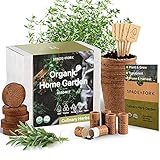 Top
Top | Indoor Herb Garden Starter Kit - Certified USDA Organic Non GMO - 5 Herb Seed Basil, Cilantro, Parsley, Sage, Thyme | PrimeEligible | Check Price on Amazon |
 Top
Top | Indoor Herb Garden Growing Kit - Thyme, Parsley, Chives, Cilantro, Basil, USDA Organic and Non-GMO | PrimeEligible | Check Price on Amazon |
 Top
Top | 9 Herb Window Garden - Indoor Herb Starter Kit | PrimeEligible | Check Price on Amazon |
20. Coriander
Last but not least, coriander – also known as cilantro – the superstar herb in many cuisines. But it’s not just about adding zest to your dishes; it’s also a defender against aphids and spider mites in your garden.
Coriander is like the guardian angel of your plants, watching over them while you enjoy its fresh leaves in your culinary creations.
By growing coriander, you’re not just satisfying your taste buds; you’re also ensuring your plants stay safe from common pests.
For Further Reading
- Deer vs. Petunias: Will Your Flowers Survive? 5+ Effective Methods to Repel Deer
- The Secret to a Pest-Free Garden: Plant These With Your Tomatoes!
- Chiggers vs. Clover Mites: Learn the Differences for Better Control
Final Thoughts on Plants that Repel Flies and Pests
Creating a bug-free garden without harmful chemicals benefits the environment and your well-being.
By incorporating these versatile plants into your garden, you can naturally repel flies and pests while enhancing the beauty of your outdoor space.
Embrace the eco-friendly approach to gardening, and watch your garden thrive while maintaining a healthy balance with nature.

Darrell has a passion for gardening that he inherited from his father. Go here to read more about the influence his father played in his love for gardening. If you want to send Darrell a quick message, then visit his contact page here.

![How to Water Indoor Plants [Plant Care 101]](https://wraxly.com/wp-content/uploads/2021/03/How-to-Water-Indoor-Plants-Plant-Care-101-1200-1024x576.webp)
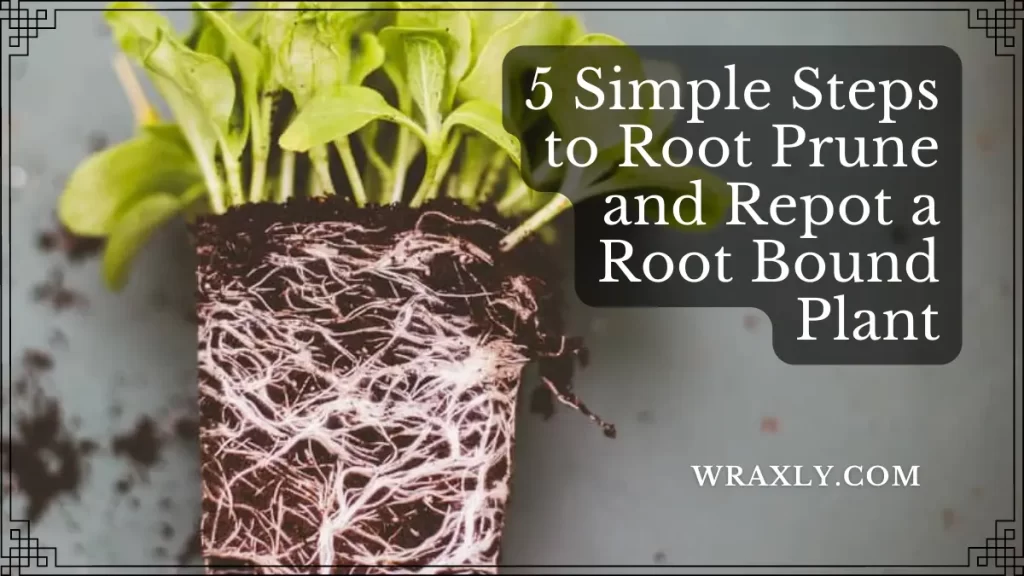
![Growing Plants from Cuttings [A Simple Guide]](https://wraxly.com/wp-content/uploads/2021/03/Growing-Plants-from-Cuttings-A-Simple-Guide-1200-1024x576.webp)